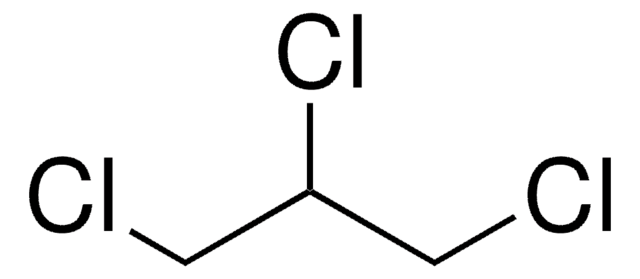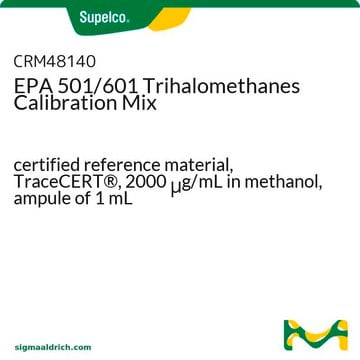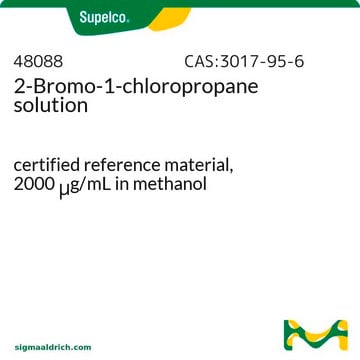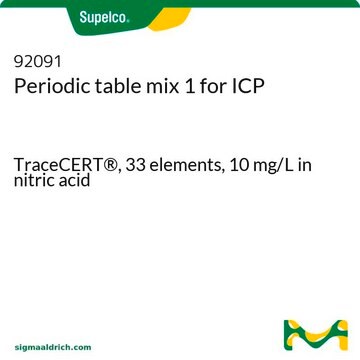48355
1,2,3-Trichloropropane solution
certified reference material, 200 μg/mL in methanol
About This Item
Recommended Products
grade
certified reference material
TraceCERT®
Agency
EPA 552
product line
TraceCERT®
CofA
current certificate can be downloaded
feature
standard type internal
packaging
ampule of 1 mL
concentration
200 μg/mL in methanol
technique(s)
HPLC: suitable
gas chromatography (GC): suitable
application(s)
cleaning products
cosmetics
environmental
food and beverages
personal care
format
single component solution
storage temp.
2-8°C
InChI
1S/C3H5Cl3/c4-1-3(6)2-5/h3H,1-2H2
InChI key
CFXQEHVMCRXUSD-UHFFFAOYSA-N
Looking for similar products? Visit Product Comparison Guide
Application
Other Notes
Legal Information
Signal Word
Danger
Hazard Statements
Precautionary Statements
Hazard Classifications
Acute Tox. 3 Dermal - Acute Tox. 3 Inhalation - Acute Tox. 3 Oral - Flam. Liq. 2 - STOT SE 1
Storage Class Code
3 - Flammable liquids
WGK
WGK 1
Flash Point(F)
51.8 °F
Flash Point(C)
11 °C
Choose from one of the most recent versions:
Already Own This Product?
Find documentation for the products that you have recently purchased in the Document Library.
Customers Also Viewed
Our team of scientists has experience in all areas of research including Life Science, Material Science, Chemical Synthesis, Chromatography, Analytical and many others.
Contact Technical Service









